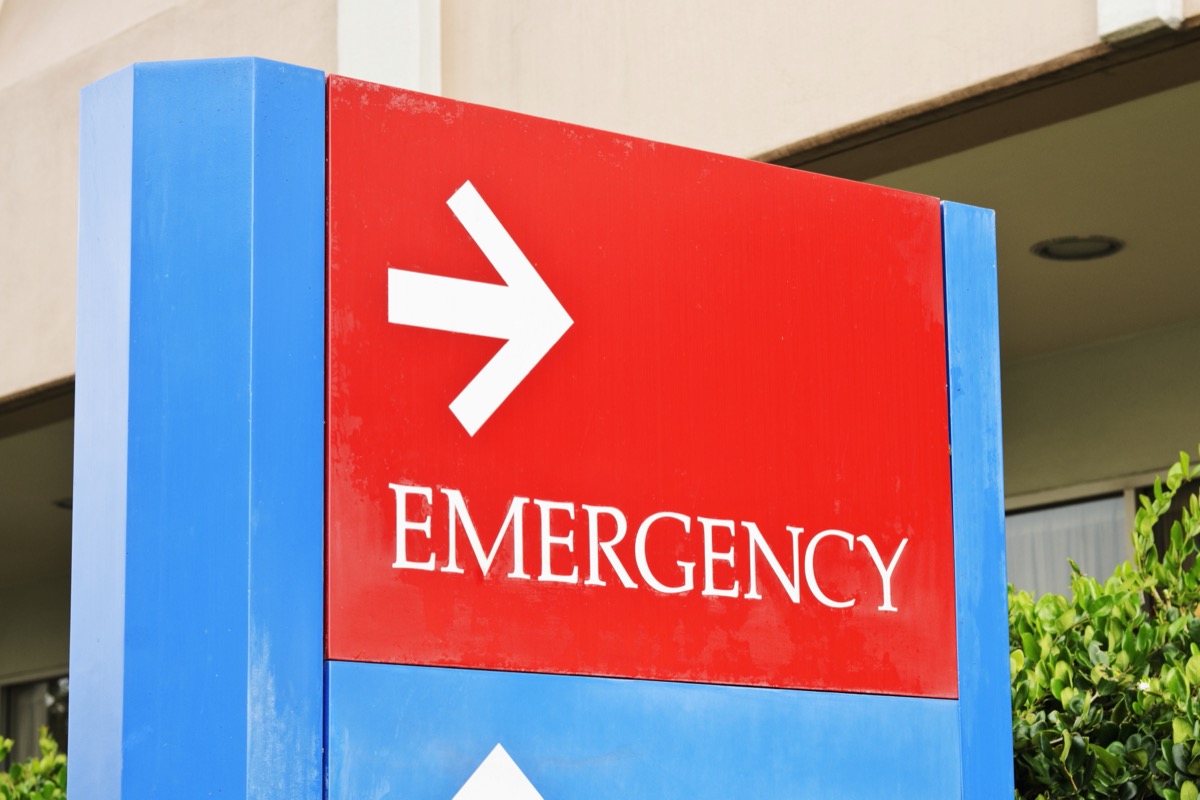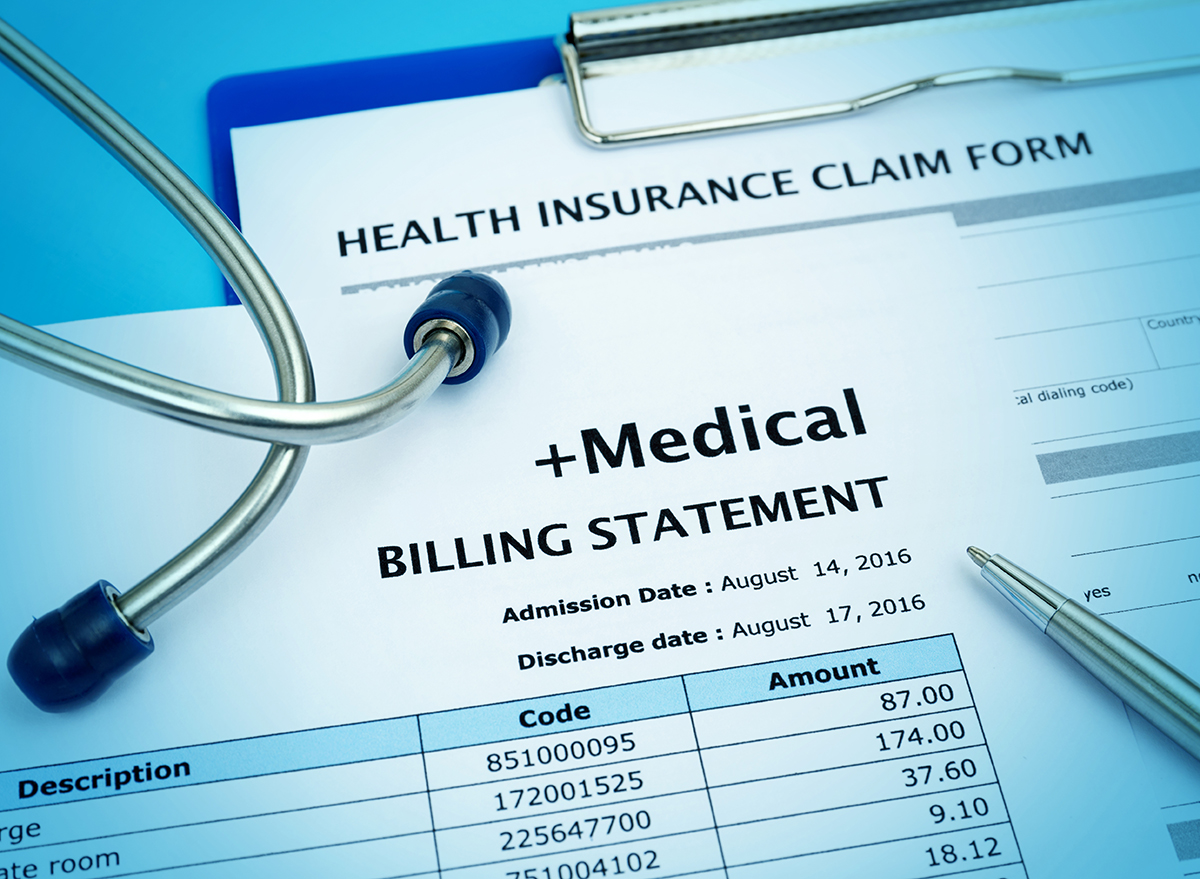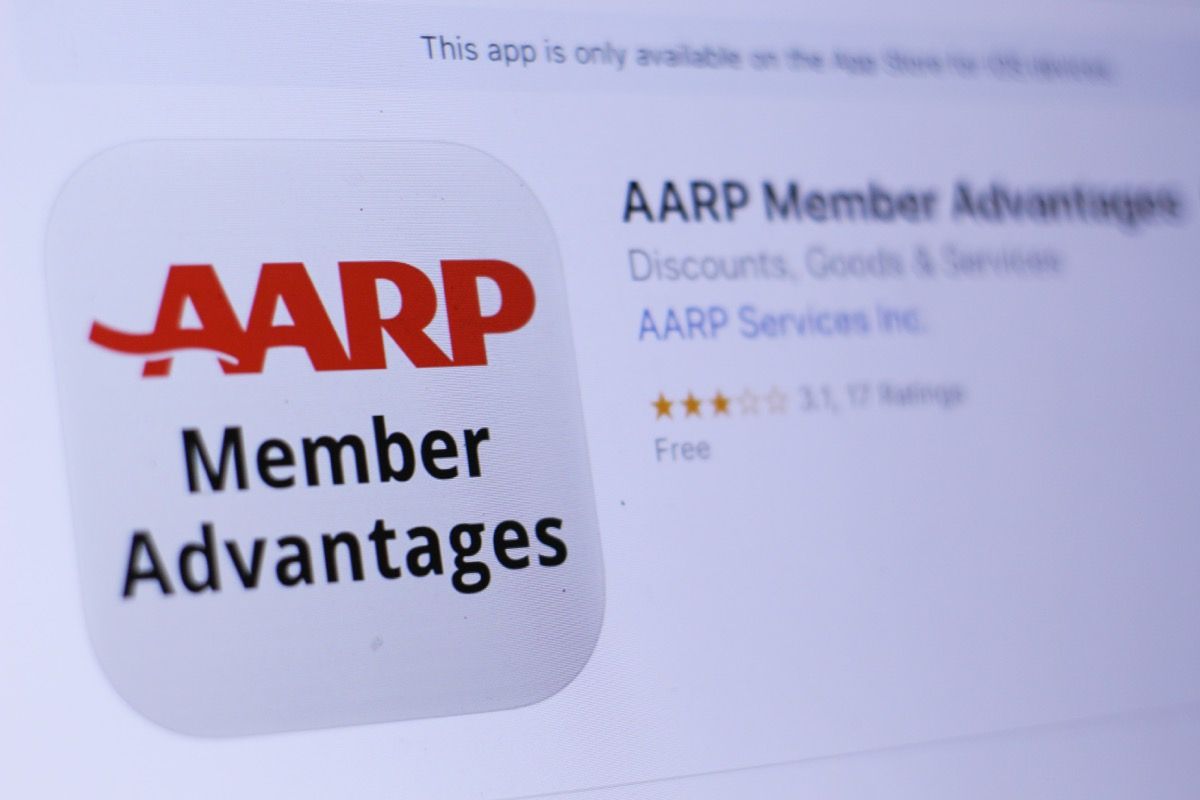How to Save on Healthcare, According to Financial Experts

Every year, the U.S. spends roughly 4.5 trillion dollars on healthcare, making it one of the most expensive places in the world to tend to your medical needs—and leading many people to figure out how to save on healthcare costs.
According to the American Medical Association (AMA), this figure translates into the average American spending over $13,000 per year on healthcare, with roughly 30 percent of that going toward hospital care, 15 percent to physician services, and nearly 10 percent to prescription drugs. Besides those big ticket items, people also spend on the net cost of health insurance, clinical services, nursing care facilities, home health care, and miscellaneous healthcare expenses.
However, according to financial and medical experts, there are many ways to save on healthcare costs if you’re strategic in your spending. Read on for their 13 best pieces of advice.
RELATED: 7 Things to Leave Out of Your Will, Experts Say.
1
Invest in preventative care.

One of the best things you can do—not only for your health-related finances but also for your health itself—is to invest in preventative care. This can reduce costlier treatments in the future and enhance your well-being while you’re at it.
“For example, routine physicals and getting adequate vaccinations can fend off diseases that one day, if left untreated, could result in expensive hospitalizations and emergency room visits,” says Armen Gazaryan, chairman and medical expert at the company CalltheCare. “For example, if the individual is at risk for avoidable chronic conditions, the savings of preventative care can total several hundreds or thousands of dollars a year, which can then prevent further high costs of care on the healthcare system.”
2
Use your health savings account (HSA) or flexible spending account (FSA).

Next, you should be sure to utilize health savings accounts (HSAs) or flexible spending accounts (FSAs) that may be provided by your employer.
“FSAs are tax-advantaged accounts you can use to cover out-of-pocket medical expenses on a pre-tax basis, lowering your taxable income and, in doing so, saving you money on taxes,” Gazaryan explains. “This can save you hundreds of dollars every year, depending on your tax bracket and the amount you contribute. So, for example, if you put away $2,000 in an HSA and you are in a 25 percent tax bracket, you will actually save $500 a year in taxes.”
Sean Fox, president of debt solutions at digital personal finance company Achieve, adds that you should check your balances and plan out your spending ahead of time.
“Schedule appointments and procedures now; don’t wait until the fall or winter. Know, too, that you can use the funds for many different types of products and services, ranging from physician appointments to prescription and over-the-counter medications, and day-care and elder-care expenses. Even purchases of hand sanitizer and sunscreen can apply.”
To get a full list about FSA-qualifying expenses, you can check out the full list on the IRS website.
RELATED: 5 Credit Cards That Will Actually Save You Money on Gas, Experts Say.
3
Use pharmacy discount cards and websites.

Another simple way to save on prescription drugs is to seek out pharmacy discount cards or websites, such as GoodRx, WellRx, and SingleCare.
“Prescription drug discount cards are a practical option for patients who are not covered by insurance and want to find ways to reduce drug costs,” says Joe Tammaro, VP of pharmacy solutions for DrFirst. “However, even people with insurance can use the discount cards—just not in combination with their insurance. In some cases, such as when a patient has not yet met their deductible or if a drug is not covered or has a high copay, a discount card can provide a lower cash price.”
He adds that prescription discount cards can typically be used for any prescription medication: “However, the savings can vary greatly depending on the specific drug, and even with discounts, costs may still be relatively high.”
4
Price check.

Oftentimes, people are unpleasantly surprised after an appointment or procedure when they receive a medical bill in the mail. Fox says it’s important to inquire about costs upfront in order to price check and compare your options.
“With strict limits on coverage and often higher deductibles, comparison shopping can be a real asset. Especially if you have a significant procedure approaching, find out the cost first,” he advises. “Most medical practices have a billing manager who can provide this information, which can help you prepare and plan finances.”
5
Request generic medications.

If your doctor says it’s safe and effective for you to do so, you can save money by requesting the generic medication over the brand-name drug.
“They are chemically the same as a brand-name drug and often cost less,” Gazaryan notes. “This has the potential to save people up to 85 percent on their prescriptions.”
For example, if a branded drug costs roughly 100 dollars, you might expect its generic version to cost 15 dollars. “This can add up to huge savings over a year, particularly for people who are on more than one long-term medication,” Gazaryan says.
RELATED: How to Coupon: Strategies to Save Big, Retail Experts Say.
6
Get a second opinion.

Fox notes that getting a second opinion can sometimes help you save money on healthcare—especially if you’re anticipating a major procedure.
“Most insurance policies cover the cost of a second-opinion provider appointment. Check with your insurer first. You may find different options that are better for both care and/or cost,” he tells Best Life.
7
Use telehealth when it makes sense.

Costs for telehealth services can vary, but in general, these appointments tend to be less costly than in-person doctor visits.
“Often, you need to see a healthcare provider in person. But in some cases—whether for a consultation, follow-up, or with certain symptoms—you may be able to do a telehealth appointment,” Fox says, noting that this can slash costs in half, depending on the provider.
8
Always stay in-network.

If you have health insurance, it’s a good idea to always search for doctors who are within your network. This includes physicians, dentists, physical therapists, and any other medical provider you may see.
“Since network changes can happen frequently, make sure to check before you schedule any procedure,” recommends Fox. “With many insurance plans, in-network physicians, surgeons, hospitals, and pharmacies result in lower expenses.”
He explains that a new bill known as The No Surprises Act was recently passed with the express purpose of limiting ‘surprise’ bills from some out-of-network providers; however, it’s still important to verify that providers are in-network.
RELATED: How to Pay Off Your Mortgage Early, Finance Experts Say.
9
Avoid the ER when safe alternatives are available.

There are some times when an ER visit is unavoidable—and in those moments, cost should come second to your safety. But that doesn’t mean you can’t think ahead about emergency care, potentially limiting your financial burden.
“It’s essential to know which hospitals are in-network before an emergency occurs,” says Chelsea Ryckis, founder and president of Ethos Benefits, a firm dedicated to advancing fiduciary-driven health insurance strategies for employers. “In the event of an emergency, being treated at an in-network hospital can prevent exorbitant out-of-pocket costs. Researching and identifying in-network hospitals in advance can be a crucial step in financial planning for emergencies.”
Fox adds that urgent care offices can also offer an alternative much of the time. “An urgent care facility is sometimes most appropriate, able to treat many illnesses, burns, sprains, and some fractures at a lower cost. If you visit one of these facilities—or a retail clinic—ask first if they accept your health insurance,” he says.
If you were, or will be, treated at a hospital emergency room, he recommends asking about financial resources: “Most have case workers who will work with patients and suggest payment plans or resources that could help.”
10
Check bills for errors.

It’s tempting to glaze over at the sight of those astronomically high medical bills, but there’s an important reason to focus.
“According to some experts, up to 80 percent of medical bills contain errors,” says Fox. “Call your healthcare provider’s billing department if you spot any areas of concern or if you don’t understand something on a bill. Make sure to review insurance company payments for accuracy, too, and contact them with any questions.”
11
Inquire about a cash discount.

If you know that your insurance plan is unlikely to offer substantial coverage for a procedure, consider asking your medical office about whether they offer discounts for cash payments.
“Many providers offer substantial discounts when a patient pays by cash, rather than filing an insurance claim,” Fox notes. Ask up-front about this, before you receive treatment and before you are billed.
“Discounts will vary by provider and procedure, but it is not uncommon for the cash-pay price of a procedure to be less than half the price billed to insurance. Practices also might offer payment plan options if you cannot afford to pay all at once,” he says.
RELATED: 9 Surprising Things That Can Boost Your Credit Score, Finance Experts Say.
12
Avoid putting medical expenses on a credit card.

Fox also recommends that you avoid putting medical expenses on credit cards. Once you put a charge on your credit card, the amount becomes “credit card debt,” and is no longer “medical debt.”
“In other words, as soon as you charge an expense to your credit card, it becomes money you owe to your credit card company, not the provider. If you are confident you will be able to pay off your credit card bill in full and on time, this might be fine. But if not, you’ll be subject to regular credit card interest rates, which are currently around 20 percent,” he says.
13
Ask for help if you need it.

Finally, don’t be afraid to ask for help or request any discounts you believe you may be entitled to. Seniors, veterans, teachers, healthcare workers, and others tend to get preferential treatment.
“Contact local organizations that provide financial help. These may include charitable foundations, churches, or government agencies,” Fox says. “Organizations ranging from auto clubs to college alumni groups may offer discounts.”